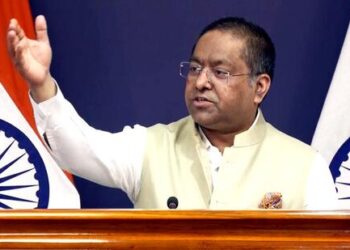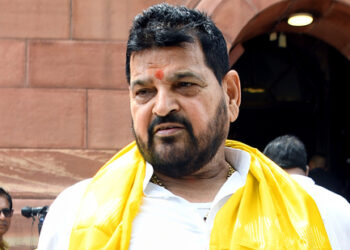In an impassioned address headed “Two years to save the world,” UN climate chief Simon Stiell warned that just two years are remaining to prevent a global climate disaster.
In light of the Paris Agreement, Stiell urged nations to fortify their nationally determined contributions (NDCs), or climate plans, as soon as possible. Despite the Intergovernmental Panel on Climate Change’s warning that global greenhouse gas emissions must peak by 2025 and plummet 43% by 2030 to limit warming to 1.5°C, he claimed that current NDCs will hardly lower emissions by 2030.
“As of right now, the combined effect of NDCs will hardly reduce emissions by 2030. Speaking at Chatham House in London, Stiell stated, “With a new generation of national climate plans, we still have a chance to make greenhouse gas emissions tumble.” However, we urgently need these more robust strategies. Furthermore, even though each nation must submit a new plan, G20 emissions account for almost 80% of world emissions.
Stiell emphasized that strengthening NDCs in developing nations will depend on a new climate finance agreement signed at the UN Climate Conference (COP29) in Baku in November. He urged both wealthy and developing countries to agree on a more concessional financing package.
The comments are made as the world’s temperatures are rising. For the tenth time in a row, March was the warmest month ever recorded. The EU’s Copernicus Climate Change Service announced on Tuesday that the average global temperature over the past twelve months (April 2023 – March 2024) is 0.70°C higher than the average from 1991 to 2020, making it the hottest on record.
For states like India, who have insisted that affluent nations deliver climate financing immediately, COP29 will be crucial. Bhupender Yadav, India’s environment minister, has emphasized that by 2030, trillions of dollars in easily accessible financing will be required.








 India
India












